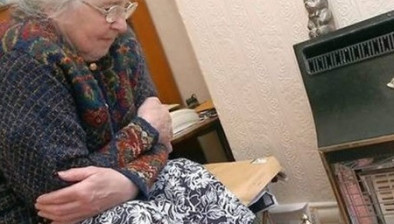Charities to offer free checks to older people to combat malnutrition

Charities have teamed up to offer a new service aimed at an estimated 103,000 older people in Scotland at risk of malnutrition.
Age Scotland will be offering free nutrition checks to older people through its Helpline, as part of a partnership with Eat Well Age Well.
This follows new research which revealed that food insecurity is putting older people at risk of becoming underweight and malnourished, with an estimated one in 10 at risk nationwide.
Eat Well Age Well, a project delivered by the Scottish charity Food Train, found that barriers such as loneliness and isolation could lead to a lack of reliable access to healthy and nutritious food. Health conditions such as dementia, depression, and changes to taste, smell and appetite, can also lead to people not eating an adequate diet.
COVID-19 has exacerbated this issue, with thousands of older people struggling to access local shops and supermarkets, while lunch clubs and similar groups have been cancelled.
Anyone concerned about themselves or an older relative are being urged to call the free Age Scotland Helpline from now until November 22. Skilled advisors will help complete a four-section survey and identify issues before they become more severe.
Brian Sloan, Age Scotland’s chief executive, said: “Childhood hunger has quite rightly received plenty of media attention lately. But we often forget about poor nutrition at the other end of the age spectrum. It’s shocking that more than 100,000 older people in Scotland are at risk of malnutrition.
“Eating well is vital for all of us, but this is particularly true as we age or if we are living with long-term health conditions. Poor nutrition can have a serious health impact, leading to a weaker immune system and loss of bone density, resulting in more falls and fractures. It can also affect our mental health and make us more vulnerable to depression.
“Access to food became a significant concern for many older people when the COVID-19 pandemic hit, with tens of thousands reliant on food parcels as they were unable to access supermarkets in person or online. Now, with new restrictions in force, we urgently need to make sure that everyone has access to nutritious food over the winter and beyond.”
He added: “By continuing our partnership with Food Train and working together to encourage people think about their diet, we can help spot potential issues before they become more severe. This is particularly important at a time when older people may not be seeing friends and family as often.
“We would encourage any older person concerned about their own nutrition to call our helpline on 0800 12 44 222. Perhaps you have lost weight without meaning to, have noticed a lack of appetite, or are concerned that the types of food available to you are not meeting your needs.
“We would also urge individuals to keep an eye out for any warning signs of malnutrition in older family members, friends and neighbours and reach out as a matter of urgency.”
Sue Newall, project support officer with Eat Well Age Well, commented: “The problem of malnutrition among older people does not have the recognition it desperately needs. It is too often overlooked in comparison to more dominant public health messages surrounding diet and obesity. Yet this is a serious problem, faced by unacceptable numbers of people in modern Scotland.
“2020 has proved more than ever that urgent action is needed to create better food systems for older people in Scotland. The COVID-19 pandemic has thrown into the spotlight the challenges and barriers older people face on a daily basis to access food and eat well and this needs to change. Not being able to get to the shops, loss of regular support and loss of social interaction through shielding, are some of the factors that have made older people more vulnerable to the risks of malnutrition.
“There is clear evidence we can prevent malnutrition through early identification and screening. By offering the nutrition checks we will be better able to identify those at risk at an early stage and help to improve the lives of older people in Scotland by making available simple advice and information that can make a big difference.”








